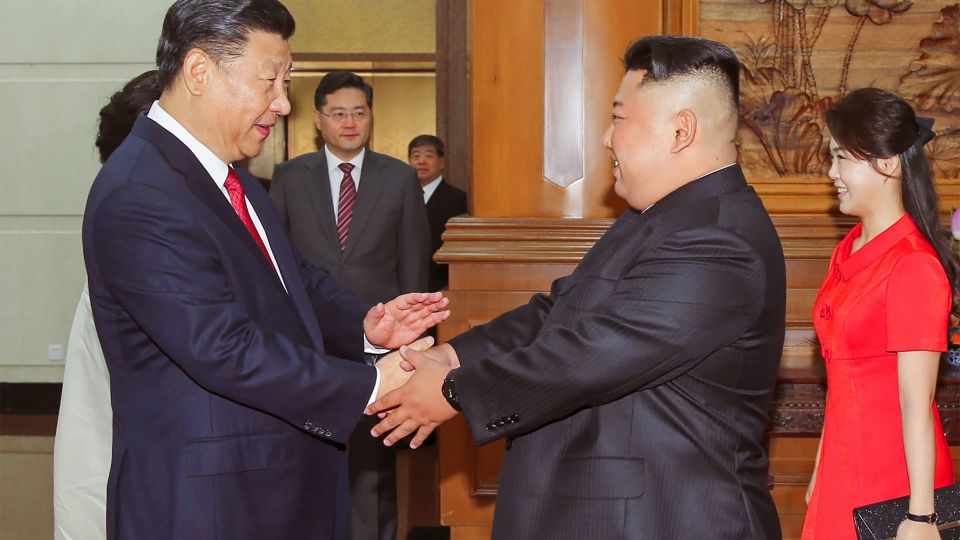June 25, 2018
The summit is over and done, now comes the hard part.
With the summit now consigned to history books, leaders from across the globe are now looking to the President of the United States and the Chairman of North Korea to fulfil their promise and begin the process of denuclearization.
A myriad of diplomatic undercurrents is in play.
The United States will have to balance Donald Trump’s desire to rewrite the history books and be the president to bring North Korea into the 21st century with the very real security concerns of their longtime allies in Seoul and Tokyo, not to mention the hawks residing in his own cabinet.
North Korea’s Kim will have to counterbalance the more extreme members of the military within his country while also not causing longtime ally and major trading partner China to feel uncomfortable with the Washington-Pyongyang rapprochement.
Allies make their move
Prime Minister Shinzo Abe has already announced that Japan is prepared to cover some of the costs of the IAEA inspections in North Korea. The government hopes to further contribute to the denuclearization process by dispatching engineers and other personnel to North Korea, reports the Yomiuri Shimbun.
Abe had spent the days before the summit flying to DC to appeal to Trump the real security concerns that Japan has.
North Korean test rockets regularly fly over the country and all major cities of the island-nation are within range of Pyongyang’s nuclear-tipped missiles.
According to the Yomiuri Shimbun, the denuclearization process envisaged by Japan, the United States and other nations, North Korea will first declare the entirety of its nuclear weapons and nuclear-related facilities, with the International Atomic Energy Agency verifying the content of this declaration through inspections and other steps.
In addition, the United States would spearhead a stage-by-stage dismantling of North Korea’s nuclear weapons and the scrapping and removal of its nuclear facilities. The IAEA would continue verification work during this process.
Such stringent examination and verification methods will be pushed by Abe who faces a sceptical electorate at home.
Trump’s allies in Seoul have been more receptive to the summit than their counterparts in Tokyo, after all, it was Moon Jae-in’s hard diplomatic work that made the entire gathering possible to begin with.
But Trump’s promise to end military drills between the US and South Korea have irked longtime observers and US supporters within the south.
An editorial in the Korea Herald argued:
“By promising to stop the joint military exercises without a parallel action on the North’s part to reduce security tensions on the peninsula, Trump surrendered a good negotiation card. No wonder his reckless, premature move has been under heavy fire from members of the US Congress, media and experts on North Korea. Trump also ignored the fact that the security threat from the North comes not only from its nukes and missiles, but also its conventional war capability, which is at a top level on a global scale.
… a drastic change to the status of the US forces in South Korea should never be made before achieving the complete, verifiable and irreversible dismantlement of the North’s nuclear capability and a significant reduction in threat from the North’s conventional forces.”
The China Factor
Kim for his part, rushed immediately to Beijing after the summit ended to debrief Xi Jinping on the proceedings.
It is thought by observers that Xi pressed on Kim that US-South Korea military drills must end before any other concrete steps can be taken.
After the Kim-Xi meeting, a statement was released in Chinese state media which highlighted the importance of China’s role in bringing peace to the peninsula.
“The third visit to China in less than three months by Kim Jong-un, top leader of the DPRK, is clear proof of the revitalized friendship between the two neighbours and the close communication between Kim and President Xi Jinping. It also underscores the coordination of Beijing and Pyongyang as they look to bolster the positive outcomes of Kim’s meeting with US President Donald Trump in Singapore on June 12,” the statement read.
According to North Korean media, Kim declared that North Korea will cooperate closely with Chinese leadership in “the historic journey to open a new future on the Korean Peninsula and the region.”
“The point of interest now is the steps (North Korea) will take for denuclearization, but instead (Kim Jong-un) went to China, where Xi talked about strengthening China-North Korea relations,” said Cha Du-hyeogn, a visiting research fellow at the Asan Institute for Policy Studies.
“This could be seen as the North saying that it has nothing to give (in negotiations with the US) at this point and that they have support,” Cha told the Korean Herald. Cha also said that the circumstances of the meeting suggests that the North wants to pace itself in dealings with the US.
Next Steps
On Friday, Trump renewed sanctions on North Korea for a year in an executive order, saying the country poses an “extraordinary threat,” just 10 days after saying there was no nuclear risk from Pyongyang, according to the Korean Herald.
The extension appears to reaffirm the US position that sanctions will remain until denuclearization is achieved, despite Pyongyang and Washington engaging in negotiations to rid the Korean Peninsula of nuclear weapons programs.
Also Friday, Seoul and Washington agreed to indefinitely suspend two Korean Marine Exchange Program training exercises, scheduled to take place in the next three months, to support diplomatic negotiations with North Korea, the Pentagon said.
The allies have already announced that they will suspend the annual Freedom Guardian, large-scale exercises that had been planned for August, while talks with North Korea are underway “in good faith.”
With Trump attempting the placate both his allies and the north, the next move rests solely with Kim Jong-un – with the entire world watching closely.


